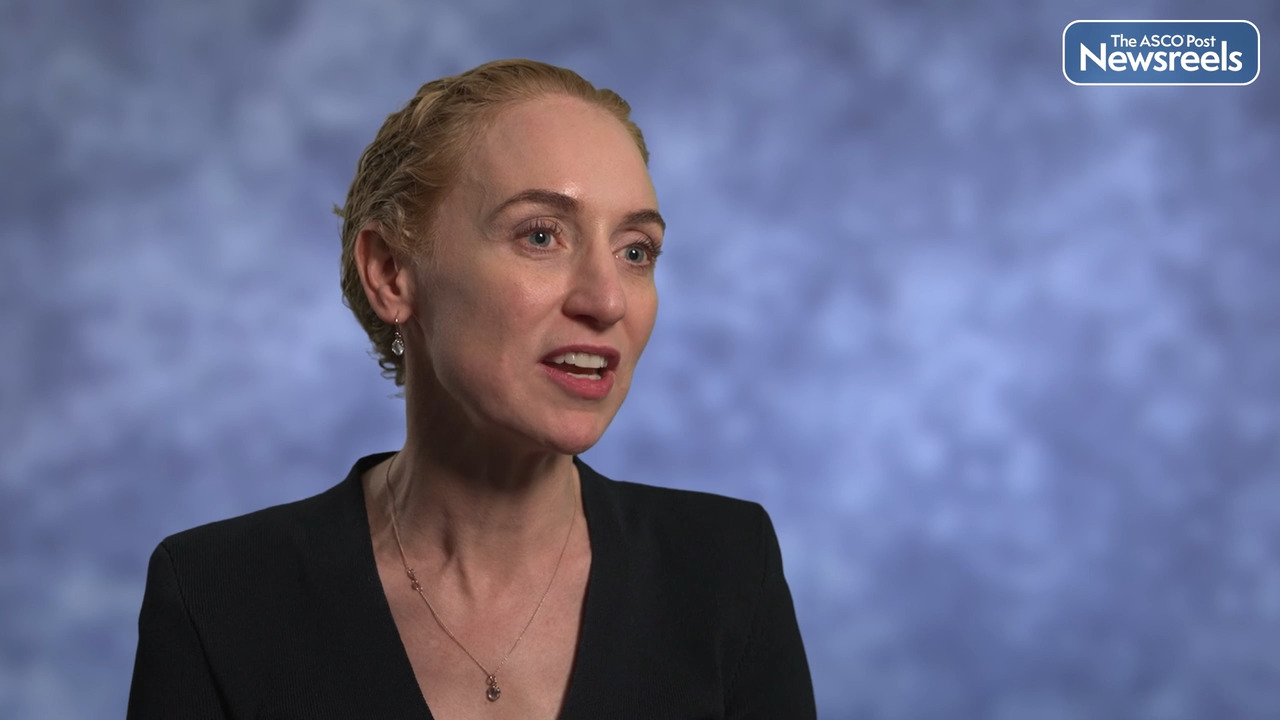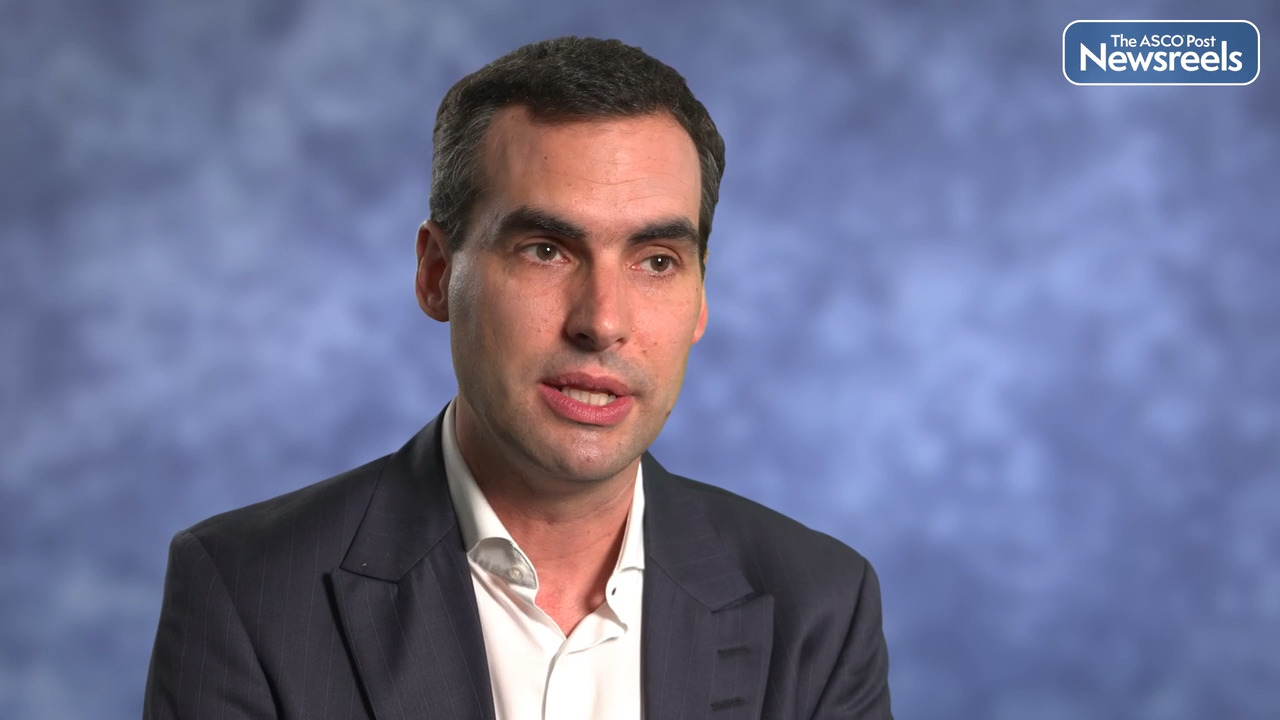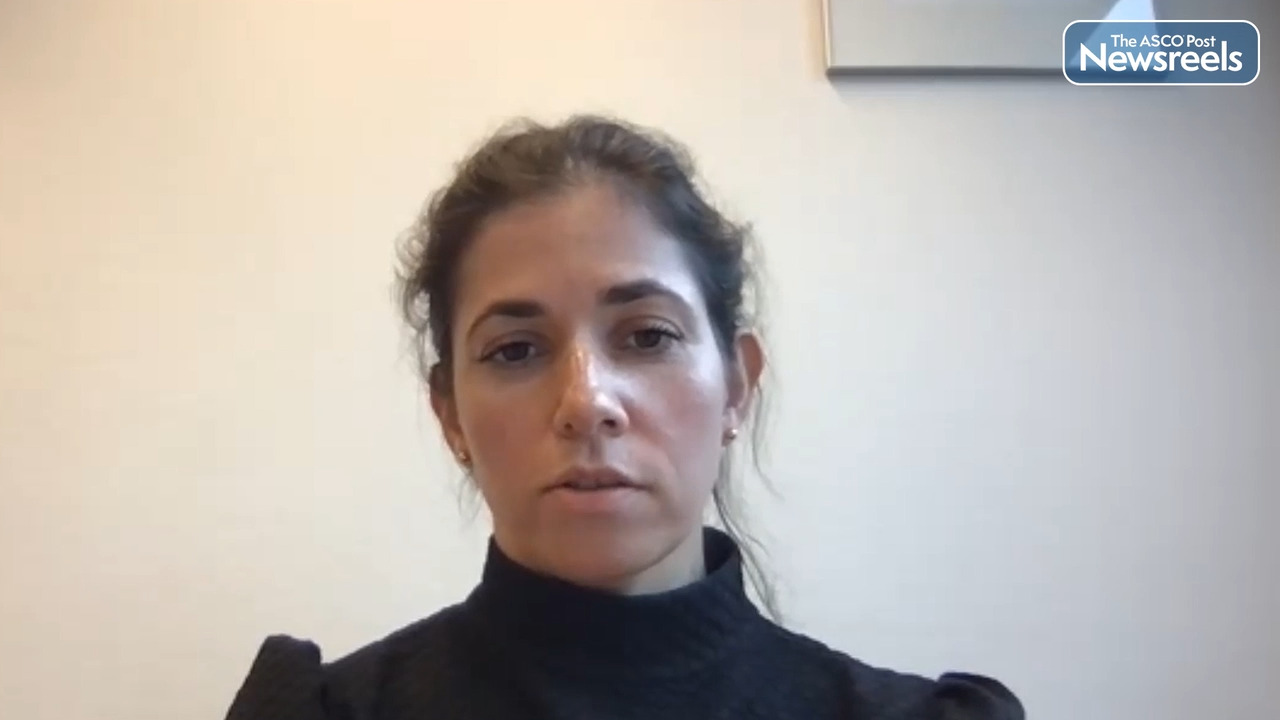Ana Oaknin, MD, PhD, on Cervical Cancer: New Findings on Cemiplimab in Recurrent or Metastatic Disease
ESMO Congress 2022
Ana Oaknin, MD, PhD, of Barcelona’s Vall d’Hebron University Hospital, discusses an analysis of long-term survival from the EMPOWER-Cervical 1/GOG-3016/ENGOT-cx9 trial. Cemiplimab-rwlc is the first immunotherapy to demonstrate an overall survival benefit as a second-line monotherapy for patients with recurrent or metastatic cervical cancer previously treated with platinum-based chemotherapy but not immunotherapy. The benefit was sustained in this population (Abstract 519MO).
Transcript
Disclaimer: This video transcript has not been proofread or edited and may contain errors.
EMPOWER-Cervical 1 is a Phase III open-label randomized clinical trial in patients with recurrent metastatic cervical cancer who have progress after platinum therapy. 608 patients were randomized to anti-PD1 agent cemiplimab of investigator choice chemotherapy. The main stratification factors were geography regions, previous use of bevacizumab, histology, and ECOG. Patients received therapy until progression and acceptable toxicity on 96 weeks.
The primary endpoint of the study was overall survival, and secondary endpoint was PFS and overall response rate. Regarding baseline characteristics, the majority of patients had a squamous cell carcinoma less, than half had previous use of bevacizumab, and approximately 50% of the patients had received more than one prior line of therapy for the recovering and metastatic setting. The trial met its primary endpoint and the final analysis of survival, with 30 months of follow-up show that median overall survival was significantly longer with cemiplimab compared with chemotherapy in the squamous cell carcinoma population, also, in the overall population.
Regarding the results, according the PDL-1 status, we can state that overall survival was longer for both populations, PDL-1-positive and PDL-1-negative. In addition, higher overall respond rates were observed with cemiplimab compared with chemotherapy in all the population, namely PDL-1-positive and PDL-1-negative. In terms of safety, there is no new safety signal. The safety profile of cemiplimab was consistent with that other anti PDL-1 regimen.
So, we can conclude saying that cemiplimab, a second-line therapy after platinum failure statistically and clinically meaningful prolongation of overall survival compared with chemotherapy in squamous cell carcinoma population, and in the overall population. In the PDL-tested population, cemiplimab was associated with the clinical-meaningful improvement of overall survival compared with chemotherapy in both populations, namely PDL-1-positive and PDL-1-negative.
In summary, cemiplimab was associated with a prolongation on overall survival for the patients who have progress after platinum therapy, regardless of PDL-1 status. I can summarize saying that with a median follow-up of three months, the final overall survival data for the EMPOWER-Cervical trial showed that cemiplimab was associated with significantly prolongation of overall survival for our patients with metastatic recurrent cervical cancer who have progress after platinum therapy.
The ASCO Post Staff
Georgina V. Long, MD, PhD, of the Melanoma Institute Australia, discusses results from the CheckMate 915 trial, an analysis of the pretreatment circulating tumor DNA, along with other clinical and translational baseline factors, and their association with disease recurrence in patients with stage IIIB–D/IV melanoma treated with adjuvant immunotherapy (Abstract 788O).
The ASCO Post Staff
Laurence Buisseret, MD, PhD, of Belgium’s Institut Jules Bordet, discusses phase II results from the SYNERGY trial, which tested first-line chemoimmunotherapy of durvalumab, paclitaxel, and carboplatin with or without the anti-CD73 antibody oleclumab in patients with advanced or metastatic triple-negative breast cancer. Although adding oleclumab to durvalumab with chemoimmunotherapy did not increase the clinical benefit rate at week 24, research is ongoing to better understand the mechanisms of response and resistance to this study combination (Abstract LBA17).
The ASCO Post Staff
Bernd Kasper, MD, PhD, of Germany’s Mannheim Cancer Center, discusses phase III data from the DeFi trial, the largest study conducted to date for patients with desmoid tumors. The trial showed that the gamma secretase inhibitor nirogacestat demonstrated improvements in all primary and secondary efficacy endpoints. Although considered benign because of their inability to metastasize, desmoid tumors can cause significant morbidity and, occasionally, mortality in patients (Abstract LBA2).
The ASCO Post Staff
Paul A. DiSilvestro, MD, of Women & Infants Hospital and the Warren Alpert Medical School of Brown University, discusses overall survival results after a 7-year follow-up of the SOLO1/GOG-3004 trial for patients with newly diagnosed advanced ovarian cancer and a BRCA mutation who received maintenance olaparib. Dr. DiSilvestro details the increasing role of such PARP inhibitors in ovarian cancer treatment and their benefit to patients (Abstract 517O).
The ASCO Post Staff
Myriam Chalabi, MD, PhD, of The Netherlands Cancer Institute, discusses data from the NICHE-2 study, which confirms previously reported pathologic responses to short-term neoadjuvant nivolumab plus ipilimumab in patients with locally advanced mismatch repair–deficient colon cancer. Survival data suggest neoadjuvant immunotherapy may become standard of care and allow further exploration of organ-sparing approaches. (Abstract LBA7).





